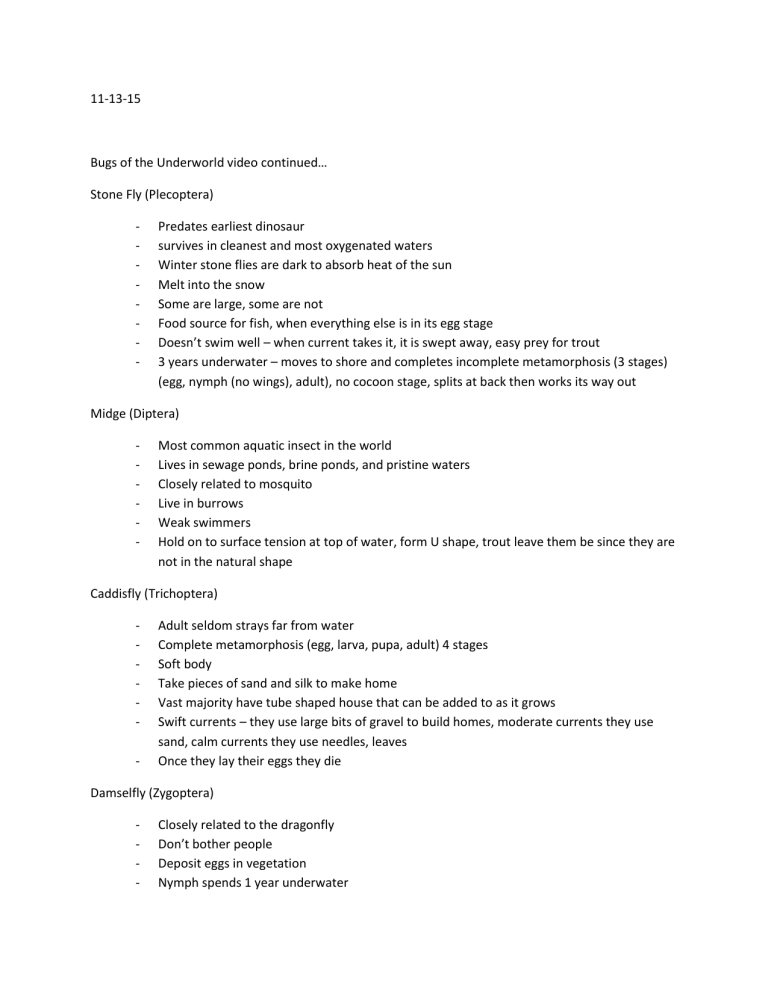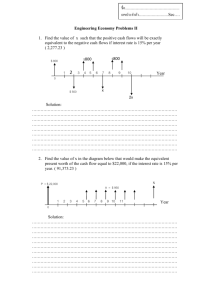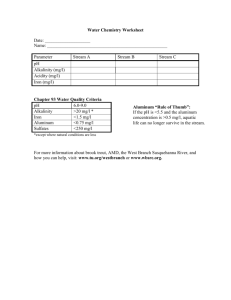11-13-15 Bugs of the Underworld video continued… Stone Fly (Plecoptera)

11-13-15
Bugs of the Underworld video continued…
Stone Fly (Plecoptera)
Predates earliest dinosaur
survives in cleanest and most oxygenated waters
Winter stone flies are dark to absorb heat of the sun
Melt into the snow
Some are large, some are not
Food source for fish, when everything else is in its egg stage
Doesn’t swim well – when current takes it, it is swept away, easy prey for trout
3 years underwater – moves to shore and completes incomplete metamorphosis (3 stages)
(egg, nymph (no wings), adult), no cocoon stage, splits at back then works its way out
Midge (Diptera)
Most common aquatic insect in the world
Lives in sewage ponds, brine ponds, and pristine waters
Closely related to mosquito
Live in burrows
Weak swimmers
Hold on to surface tension at top of water, form U shape, trout leave them be since they are not in the natural shape
Caddisfly (Trichoptera)
Adult seldom strays far from water
Complete metamorphosis (egg, larva, pupa, adult) 4 stages
Soft body
Take pieces of sand and silk to make home
Vast majority have tube shaped house that can be added to as it grows
Swift currents – they use large bits of gravel to build homes, moderate currents they use sand, calm currents they use needles, leaves
Once they lay their eggs they die
Damselfly (Zygoptera)
Closely related to the dragonfly
Don’t bother people
Deposit eggs in vegetation
Nymph spends 1 year underwater
Incomplete metamorphosis
Terrestrial emerger
Definitions:
Stream – any flowing body of water
Source – where a stream begins
Mouth – where a stream ends
Water flow – laminar flow – occurs when the water moves in straight paths that are parallel to the stream’s channel or bed turbulent flow – occurs when water moves in circular paths as It flows downstream; its going to occur because of the slope of the stream
Velocity – distance divided by time in a direction water always flows downhill
Monongahela flows north
Sediment load – dissolved load – solution, enter when water flows over rocks suspended load – larger particles such as silt and clay, causes the water to appear muddy bed load – largest particles, carried only by the fastest moving water, sand, pebbles, rocks, boulders flood plain – an area directly beside the stream, generally flat

